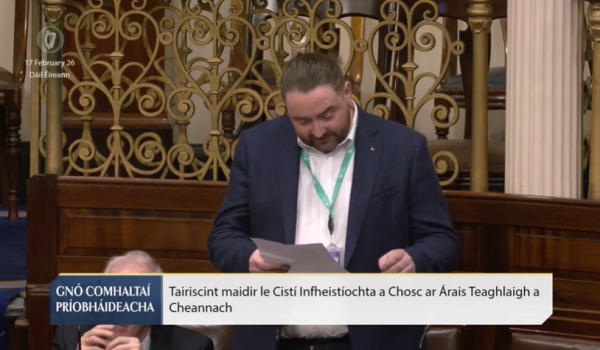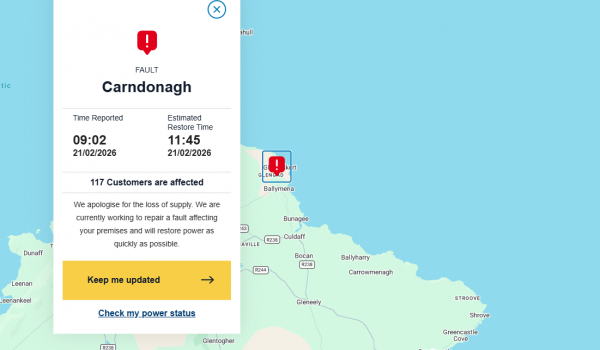
Donegal County Council is to write to the Housing Department asking for a review of what one councillor has called the inequality in contractual arrangements between landlords and local authorities for long term leasing of housing and that of RAS, the Rental Accommodation Scheme.
Cllr Rena Donaghey says both schemes are to secure medium to long term availability of private rented accommodation, yet the rental arrangements and rates of each scheme are very different.
Under the long term lease, landlords are locked into rents for five years without review or change, while under RAS, the reviews are more frequent, allowing increases where appropriate. Officials pointed out that under the long term scheme. the council is effectively taking over the upkeep of the building
Cllr Donaghey fears landlords locked into the long term scheme may break the agreement and leave the rental market, and says a way must be found to bridge to bridge the gap……..
Detailed Council response –
Introduction
The Rental Accommodation Scheme (RAS) was introduced in 2005 and the Standard Long Term Leasing
(LTL) in 2009. Under Housing for All, the Government started to phase out the Standard Long Term
Leasing programme in 2021 with only 13 Local Authorities receiving sanction to continue with them.
Effectively, LTL renewals were permited but no new agreements could be entered into by Donegal
County Council since 2021.
At the end of 2023 the following is the number of lease arrangement in place within the County;
Long Term Lease Agreements at year end 152
RAS Agreements at year end 174
Scheme Overview
Standard long-term leasing
Under the long term leasing initiative, the Council can enter into an agreement with an Owner to lease
their property for a period of time (10 – 25 year). In general, the Council has only enter into 10 year
agreement. The Council is landlord to the tenant and takes responsibility for the interior of the home.
The property owner retains responsibility for the structure of the property and pays the management
charge (if applicable). The Council pay a monthly rent to the owner for the duration of the agreement
(regardless of vacant periods).
In some cases the Owners may be paid up to 85% of market rent when the property is subject to a
significant service charge. For example, up to 85% of market rent may be paid when the home is a unit in
an apartment block where the annual service charge is equivalent to, or above, one month’s rent. In all
other cases, owners can receive up to 80% of market rent. The discount on agreed open market rent
accounts for the rent payment certainty provided to owners and the tenancy management service
undertaken by the housing authority. A rent is carried out every 3 years based on an index of the
Harmonised Index of Consumer Price.
Housing Authority is responsible for:
• internal maintenance and repair of the properties
• the lease payment to the property owner
• carrying out a detailed inspection of the property prior to entering into a lease arrangement to
ensure that the property is of a standard that is acceptable and to create a current condition
record.
• The housing authority acts as the landlord to its tenants
The Property Owner is responsible for:
• payment of the management company fee where appropriate;
• structural repairs, structural maintenance and structural insurance.
• providing evidence of compliance criteria, i.e. tax clearance certificate, planning compliance,
housing standards, fire safety, public liability and property insurance.
The Rental Accommodation Scheme (RAS)
The Rental Accommodation Scheme caters for the accommodation needs of certain people who are
geting long-term rent supplement. To qualify, an applicant must be geting Rent Supplement for a
minimum period of 18 months and be assessed as having a long-term housing need.
Main points:
• Landlord maintains landlord responsibility to the tenant i.e. landlord responsible for
maintenance etc.
• Tenancy must be registered with the RTB
• Council pays the agreed monthly payment to the landlord.
• Rental payments based on local market rent – a discount of 8% should be achieved, where
possible; however, the department understands that this may not always be possible to achieve
given the pressure on the housing market.
• The tenant pays a differential rent to the Council.
• RAS is done on a tenancy-by-tenancy basis – if tenant leaves the property, the RAS agreement
doesn’t exist any longer.
• Termination of tenancy by either tenant or Owner must be done in accordance with RTB
guidelines.
• Rent review carried out every 2 years based on local market rent.
RAS involves a three-way relationship between:
1. Housing Authority and Landlord
The local authority enters into a contractual arrangement with the property owner to make the property
available to the RAS for an agreed term.
2. Landlord and Tenant
The eligible RAS tenant, nominated by the housing authority, signs a residential tenancy agreement with
the landlord. The key private rented landlord/tenant relationship continues under the RAS. The local
authority will act as broker or agent on behalf of the tenant.
3. Housing Authority and Tenant
The RAS tenant pays a differential rent to the local authority and the local authority will make payments
to the landlord on the recipient’s behalf. When the tenant takes up a RAS tenancy they are deemed to be
in receipt of social housing support and their housing need is met.
Donegal County Council acknowledges the differences in the schemes and that having both schemes
offers a choice to landlords in terms of being actively involved in the tenancy or being more removed
and allowing the Local Authority to manage the agreement.
Donegal County Council have recently writen to the Department seeking a target/sanction for the
Standard Long Term Leasing programme to be reintroduced in Donegal. This would increase options
available to the Council for housing applicants and potential landlords seeking to enter into a lease
agreement.





